Cc Change

What role does the United Nations play in global climate change negotiations ?
The United Nations plays a crucial role in global climate change negotiations by providing a platform for international cooperation and facilitating discussions among member states. The UN's involvement in climate change issues dates back to the 1970s, when it began organizing conferences and meetings to address the growing concern over the impact of human activities on the environment. The key functions of the United Nations in climate change negotiations include: 1. Providing a Forum for Dialogue and Cooperation: The UN serves as a neutral forum where countries can come together to discuss and negotiate solutions to climate change. Through its various bodies and agencies, such as the United Nations Framework Convention on Climate Change (UNFCCC), the UN creates an environment conducive to collaboration and consensus-building among nations with diverse interests and priorities. 2. Facilitating International Agreements and Treaties: The UNFCCC, established under the UN, is the primary international environmental treaty dedicated to combating climate change. It has facilitated the adoption of several key agreements, including the Kyoto Protocol and the Paris Agreement, which set out targets for reducing greenhouse gas emissions and adapting to the impacts of climate change. 3. Promoting Research and Information Sharing: The UN supports research into climate science and promotes the sharing of knowledge and best practices among countries. This includes initiatives like the Intergovernmental Panel on Climate Change (IPCC), which provides scientific assessments of climate change and its potential impacts, informing policy decisions at both national and international levels. 4. Supporting Adaptation and Mitigation Efforts: Recognizing that some regions are more vulnerable to the effects of climate change than others, the UN assists countries in developing adaptation strategies to cope with these challenges. Additionally, it supports mitigation efforts by encouraging the adoption of clean energy technologies and sustainable development practices. 5. Advocating for Climate Finance and Technology Transfer: The UN advocates for increased funding and investment in climate action, particularly for developing countries that lack the resources to implement effective climate policies. It also pushes for the transfer of environmentally sound technologies between developed and developing nations to help bridge the gap in technological capabilities. 6. Engaging Non-State Actors and Civil Society: Beyond state actors, the UN involves non-governmental organizations (NGOs), businesses, and civil society groups in climate change discussions. These stakeholders contribute valuable perspectives and expertise, enhancing the diversity of ideas and solutions brought to the table during negotiations. 7. Monitoring Progress and Holding States Accountable: The UNFCCC oversees the implementation of climate commitments made by countries through regular reporting and review processes. This ensures transparency and accountability in meeting agreed-upon targets, fostering trust among participating nations.
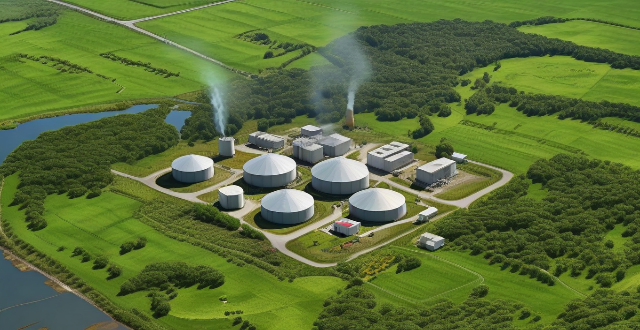
What is the significance of the United Nations Framework Convention on Climate Change (UNFCCC) ?
The United Nations Framework Convention on Climate Change (UNFCCC) is a significant international environmental treaty that aims to stabilize greenhouse gas concentrations in the atmosphere at a level that would prevent dangerous human interference with the climate system. It was adopted in 1992 and came into force in 1994, and has been ratified by 197 parties, including all of the world's major industrialized nations. The UNFCCC sets out commitments for developed country Parties and developing country Parties, holds annual Conferences of the Parties (COP), and recognizes the importance of both adaptation and mitigation in addressing climate change. The UNFCCC also acknowledges that developed countries have a responsibility to provide financial and technological support to developing countries to help them address climate change. The significance of the UNFCCC lies in its role as a framework for global cooperation on climate change, its political commitment by countries around the world, its science-based approach, its emphasis on equity, and its long-term vision for addressing climate change.
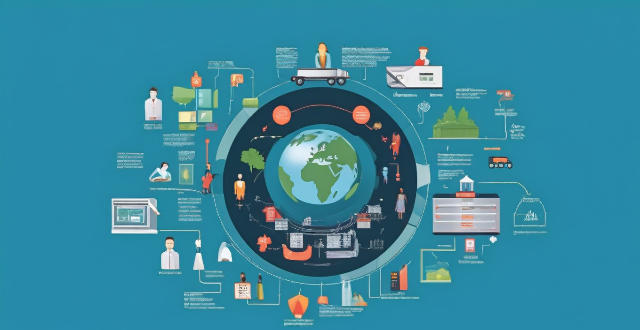
What are some examples of successful climate risk management initiatives around the world ?
Climate risk management is crucial for environmental sustainability, and successful initiatives worldwide include the Green Climate Fund (GCF), the European Union's adaptation strategy, the United Nations Framework Convention on Climate Change (UNFCCC), and the New York City Panel on Climate Change (NPCC). The GCF supports developing countries in tackling climate change through low-emission projects. The EU's strategy integrates adaptation into policy areas and invests in research. The UNFCCC provides a framework for global cooperation on climate change mitigation and adaptation. The NPCC offers scientific advice to New York City on climate risks and adaptation strategies. These initiatives adopt innovative approaches, collaborate across sectors, and engage stakeholders to build a sustainable future.
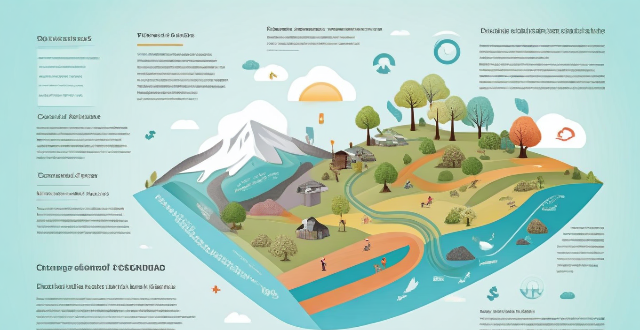
How does climate change affect education ?
Climate change impacts education through extreme weather events, health issues, food insecurity, economic challenges, social changes, and environmental degradation. These effects necessitate collaboration between educators and policymakers to develop resilient strategies for adapting to climate change.

How is climate change affecting global temperatures ?
Climate change, largely due to human activities like burning fossil fuels and deforestation, is causing a rise in global temperatures. This has led to more frequent and severe extreme weather events, melting ice caps, ocean warming and acidification, changes in precipitation patterns, impacts on biodiversity, and challenges for agriculture. The situation calls for immediate action to reduce greenhouse gas emissions and adapt to the changing climate.

How does climate change impact national security ?
Climate change impacts national security in various ways, including economic disruption, social unrest, and political instability. To mitigate these effects, it is essential to take action at both the national and international levels, such as reducing greenhouse gas emissions, investing in renewable energy sources, and adapting to the inevitable changes brought about by climate change.
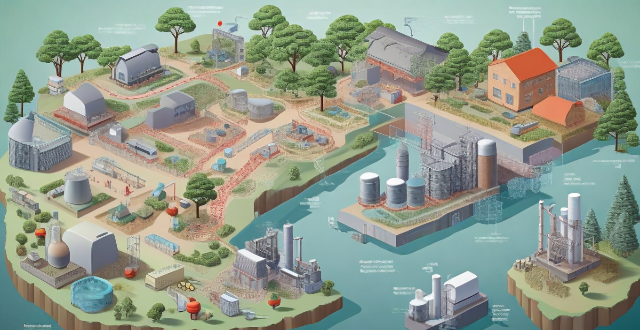
How is climate change affecting the insurance industry ?
Climate change is significantly impacting the insurance industry by increasing natural disasters, altering liability exposures, and prompting regulatory changes. Insurers must adapt to these challenges by updating risk assessment models, complying with new regulations, shifting investment portfolios towards sustainability, and innovating products. This adaptation is crucial for insurers' financial resilience and their role in aiding societal adaptation to climate change.

What are the potential risks of climate change for the insurance sector ?
Climate change poses significant threats to the insurance sector, including increased natural disasters, changes in liability exposures, property value fluctuations, and regulatory/legal changes. Insurers must adapt by assessing risks, updating policies, and collaborating with governments to create effective strategies.

How does climate change impact social justice ?
Climate change has significant impacts on social justice, affecting marginalized communities, health outcomes, economic stability, migration patterns, and gender equality. Mitigation efforts to reduce greenhouse gas emissions and adaptation strategies to build resilience against the impacts of climate change are necessary to create a more equitable future for all.

What are the impacts of climate change on human health ?
Climate change affects human health in various ways, including increased heat-related illnesses, extreme weather events, changes in disease patterns, food and water security issues, and mental health impacts. It is important to take action to mitigate these effects and protect public health.

How can education help combat climate change ?
Education is a powerful tool in the fight against climate change by fostering awareness, promoting sustainable practices, stimulating innovation, and shaping policy. It empowers individuals to make informed decisions and advocate for environmental protection through comprehensive science education, applied learning experiences, interdisciplinary research, and civic engagement. By integrating sustainability into curricula and encouraging global perspectives, education prepares future generations to tackle the complex challenges of climate change effectively.

How does climate change affect consumer behavior ?
Climate change is affecting consumer behavior by increasing environmental awareness, changing shopping habits, driving a shift towards green energy, promoting sustainable food choices, and inspiring advocacy and activism. As consumers become more conscious of their impact on the environment, they are making changes in their purchasing habits to reduce their carbon footprint. Businesses that prioritize sustainability will be better positioned to succeed as consumers continue to make eco-friendly choices.
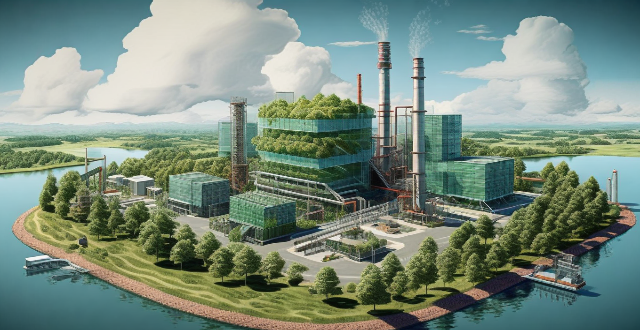
How effective has the United Nations Framework Convention on Climate Change (UNFCCC) been in addressing global climate change ?
The United Nations Framework Convention on Climate Change (UNFCCC) is a global treaty adopted in 1992 to stabilize greenhouse gas concentrations and prevent dangerous interference with the climate system. While it has achieved some successes, such as promoting international cooperation and establishing mechanisms for climate finance and technology transfer, its effectiveness has been limited by factors like lack of compliance and political will. To make a significant impact on global climate change, stronger commitment and concrete actions from all parties involved are necessary.
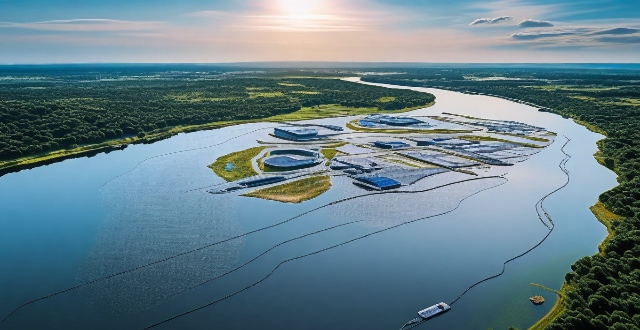
How does climate change affect water resources and availability ?
Climate change affects water resources and availability through melting glaciers, changes in precipitation patterns, sea level rise, increased evaporation rates, and impacts on ecosystems. These impacts can lead to water scarcity, flooding, contamination of freshwater sources, and declines in biodiversity. To mitigate these effects, it is important to reduce greenhouse gas emissions and implement adaptation strategies such as improved water management and conservation measures.
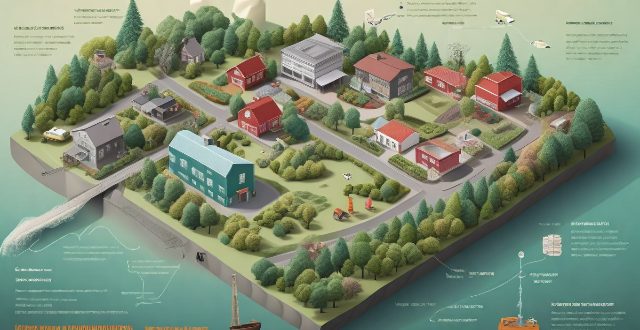
What is the impact of climate change on the global economy ?
Climate change affects the global economy in various ways, including reduced crop yields, water scarcity, forest fires, changes in energy production, human health issues, displacement and migration, and insurance and financial risks. Addressing climate change is crucial for both environmental and economic reasons.

How can climate resilience help mitigate the impacts of climate change ?
Climate resilience is a crucial strategy for mitigating the effects of climate change. It involves reducing vulnerability, enhancing adaptive capacity, promoting sustainable development practices, and fostering social cohesion. By implementing these strategies, communities can become more resilient and better able to cope with the impacts of climate change.

In what ways does climate change exacerbate existing food insecurity issues ?
Climate change exacerbates food insecurity by causing unpredictable weather, altering crop yields, increasing pest and disease outbreaks, contributing to biodiversity loss, and impacting fisheries. Addressing these challenges requires a comprehensive approach that includes adaptation strategies, sustainable agriculture practices, and efforts to mitigate the effects of climate change.
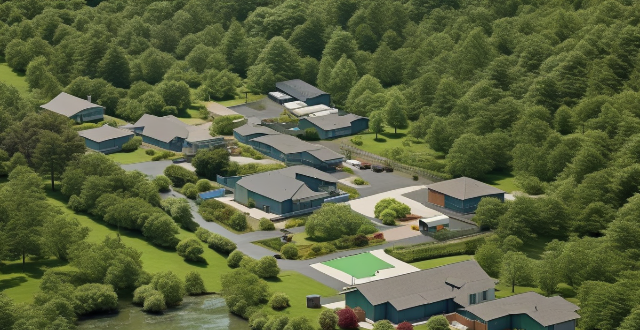
What are the key provisions of the latest climate change legislation ?
The latest climate change legislation is a comprehensive package of measures aimed at addressing the challenges posed by global warming and climate change. The key provisions include reduction of greenhouse gas emissions, adaptation to climate change impacts, international cooperation and leadership, just transition for workers and communities, and transparency and accountability.
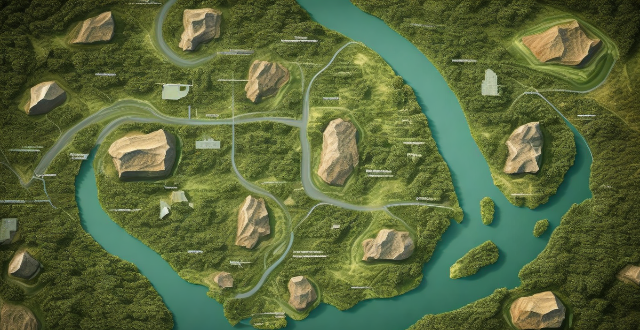
Can climate change cause extinction of certain species ?
Climate change has the potential to cause the extinction of certain species through a variety of mechanisms including rising temperatures, changes in precipitation patterns, loss of habitat, and disruption of food webs. It is essential that we take action to mitigate the effects of climate change and protect vulnerable species before it's too late.

What are the effects of climate change on biodiversity and ecosystems ?
Climate change has significant effects on biodiversity and ecosystems, including habitat loss, changes in species distribution, altered ecosystem functioning, extinction risk, and impacts on human well-being.
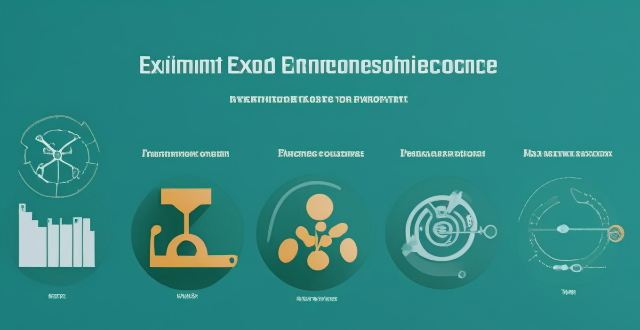
What is the relationship between climate change and poverty ?
This article examines the complex relationship between climate change and poverty, explaining how each exacerbates the other. It outlines the impact of climate change on poverty through increased natural disasters, loss of livelihoods, and health risks. Conversely, it also explores how poverty contributes to climate change through deforestation, energy poverty, and lack of resources for climate action. The article concludes by emphasizing the need for urgent attention from policymakers and individuals to address both issues simultaneously, aiming for a more equitable and sustainable future.
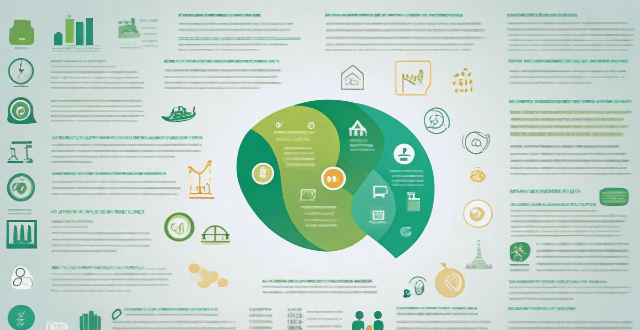
How will climate change influence future job markets ?
The article discusses how climate change will influence future job markets. It highlights the increased demand for green jobs, a shift toward resilient industries, and potential declines in certain sectors that contribute to greenhouse gas emissions or rely heavily on fossil fuels. Additionally, remote work opportunities may rise due to extreme weather events and environmental concerns. The article concludes by emphasizing the need for individuals and organizations to adapt to these changes in the job market.

How do climate summits contribute to global efforts to combat climate change ?
Climate summits play a crucial role in the global fight against climate change by setting targets and goals, encouraging international cooperation, promoting policy and technological innovation, raising awareness and mobilizing action, and financing climate action.
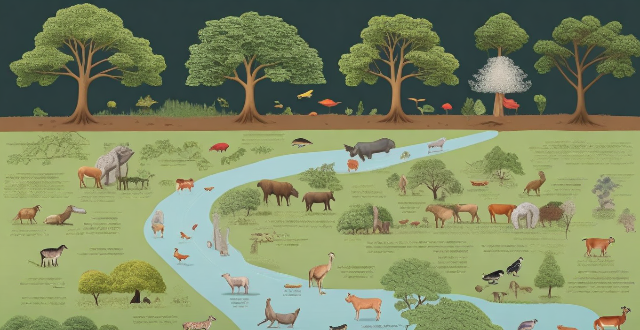
What are the potential consequences of climate change for forest-dependent communities ?
The article discusses the potential consequences of climate change for forest-dependent communities, including loss of habitat and alteration of ecosystems leading to reduced access to resources, changes in precipitation patterns affecting water availability, and impacts on agriculture and food security due to changes in crop yields and increased pests and diseases. Addressing these challenges requires a comprehensive approach that involves both adaptation strategies and efforts to mitigate the effects of climate change.

What role do children play in combating climate change ?
The article emphasizes the pivotal role children can play in combating climate change. They can contribute through education and awareness, innovation and creativity, advocacy and action, and by making sustainable lifestyle changes. By empowering children to understand and act on climate issues, we can ensure a more sustainable future for all.
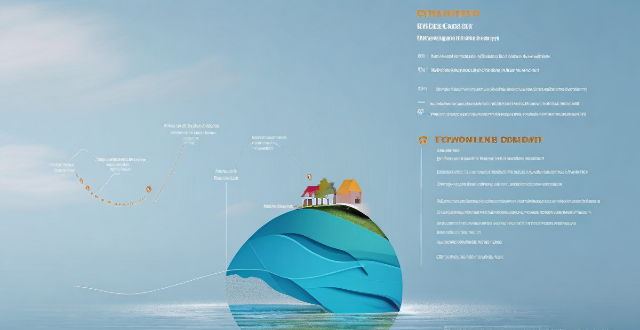
How does climate change affect global supply chain management ?
Climate change affects various aspects of life, including global supply chain management. Extreme weather events, rising sea levels, changes in agricultural production, energy costs, and labor availability are some ways in which climate change impacts this crucial aspect of business operations. Businesses must adapt their strategies to mitigate these risks and ensure the continued efficiency and effectiveness of their operations.

How do scientists study climate change ?
Scientists study climate change through observational data, modeling, and field research. They use satellites, weather stations, ocean floats, climate models, paleoclimate reconstructions, ice cores, coral reefs, tree rings, and interdisciplinary collaboration to collect and analyze data. They also publish synthesis reports like the IPCC Assessment Reports to summarize current scientific knowledge on climate change.